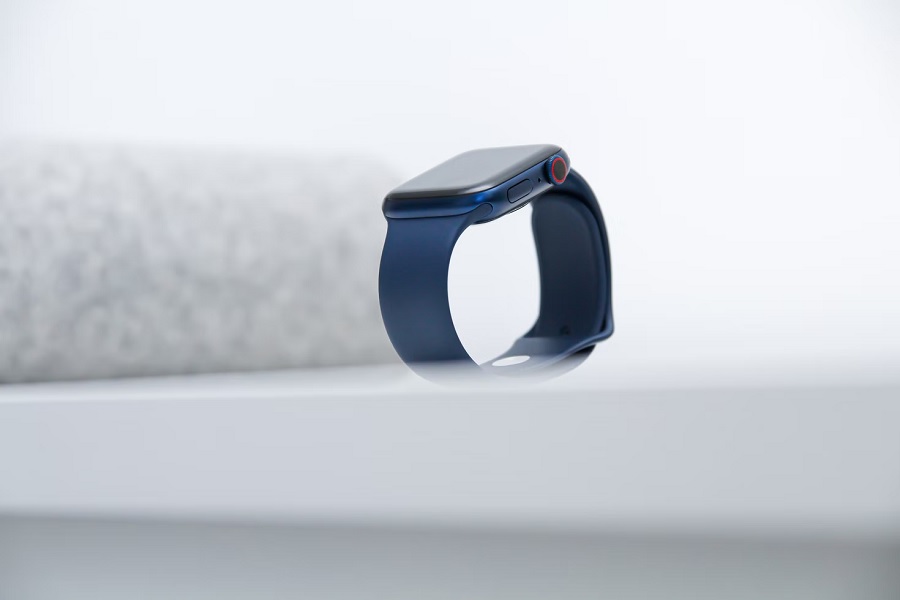Plenty of reports have suggested that Apple is introducing a new high-end model of the Apple Watch this year. The smartwatch, expected to be designed to withstand extreme sports and conditions, is now speculated to be advertised as a “Pro” product.
It is still unknown what name Apple would give to the upcoming higher-end Apple Watch. But Bloomberg’s Mark Gurman said in the latest Power On edition that it could end up being called the Apple Watch Pro. This would follow a similar approach to when Apple introduced more premium versions of its devices like the iPhone Pro, MacBook Pro, and iPad Pro.
Aside from upgraded performance and other technical specifications, having the “Pro” label in an Apple device’s name also means a higher price point. The journalist speculates that the Apple Watch Pro could be sold at the same price as the base model of the iPhone 13 Pro, which currently costs $999.
This would not be the first time Apple introduces a higher-priced Apple Watch, though. The tech giant has been offering Apple Watch Edition variants of its smartwatch flagships. Its main feature is having a titanium body, which is more durable than aluminum. Apple Watch Edition models for the Series 7 start at $799 for variants with standard bands, while options with a leather link and braided straps are priced at $849.
The Apple Watch Pro is also expected to be advertised with a “more shatter-resistant display.” But it remains to be seen how the company will achieve this and how its display material would be different from the standard Apple Watch Series 8. Aside from higher-end materials, the pricier smartwatch will reportedly offer a longer battery life and improved workout tracking for hiking and swimming. Gurman’s sources also claimed it will be available in both Wi-Fi and cellular variants.
Apple is expected to introduce a total of three new smartwatches this fall. Along with the Apple Watch Pro and Apple Watch Series 8, the iPhone maker is rumored to launch the second generation of Apple Watch SE. All three models are reportedly powered by the S8 chip, but it is expected to have the same performance as its predecessors S6 and S7 processors.
Photo by Brandon Romanchuk on Unsplash



 Anthropic Eyes $350 Billion Valuation as AI Funding and Share Sale Accelerate
Anthropic Eyes $350 Billion Valuation as AI Funding and Share Sale Accelerate  Tencent Shares Slide After WeChat Restricts YuanBao AI Promotional Links
Tencent Shares Slide After WeChat Restricts YuanBao AI Promotional Links  SpaceX Updates Starlink Privacy Policy to Allow AI Training as xAI Merger Talks and IPO Loom
SpaceX Updates Starlink Privacy Policy to Allow AI Training as xAI Merger Talks and IPO Loom  Baidu Approves $5 Billion Share Buyback and Plans First-Ever Dividend in 2026
Baidu Approves $5 Billion Share Buyback and Plans First-Ever Dividend in 2026  Elon Musk’s Empire: SpaceX, Tesla, and xAI Merger Talks Spark Investor Debate
Elon Musk’s Empire: SpaceX, Tesla, and xAI Merger Talks Spark Investor Debate  SoftBank and Intel Partner to Develop Next-Generation Memory Chips for AI Data Centers
SoftBank and Intel Partner to Develop Next-Generation Memory Chips for AI Data Centers  Oracle Plans $45–$50 Billion Funding Push in 2026 to Expand Cloud and AI Infrastructure
Oracle Plans $45–$50 Billion Funding Push in 2026 to Expand Cloud and AI Infrastructure  Instagram Outage Disrupts Thousands of U.S. Users
Instagram Outage Disrupts Thousands of U.S. Users  Nvidia, ByteDance, and the U.S.-China AI Chip Standoff Over H200 Exports
Nvidia, ByteDance, and the U.S.-China AI Chip Standoff Over H200 Exports  OpenAI Expands Enterprise AI Strategy With Major Hiring Push Ahead of New Business Offering
OpenAI Expands Enterprise AI Strategy With Major Hiring Push Ahead of New Business Offering  Global PC Makers Eye Chinese Memory Chip Suppliers Amid Ongoing Supply Crunch
Global PC Makers Eye Chinese Memory Chip Suppliers Amid Ongoing Supply Crunch  Nvidia Confirms Major OpenAI Investment Amid AI Funding Race
Nvidia Confirms Major OpenAI Investment Amid AI Funding Race  SpaceX Pushes for Early Stock Index Inclusion Ahead of Potential Record-Breaking IPO
SpaceX Pushes for Early Stock Index Inclusion Ahead of Potential Record-Breaking IPO  Palantir Stock Jumps After Strong Q4 Earnings Beat and Upbeat 2026 Revenue Forecast
Palantir Stock Jumps After Strong Q4 Earnings Beat and Upbeat 2026 Revenue Forecast  AMD Shares Slide Despite Earnings Beat as Cautious Revenue Outlook Weighs on Stock
AMD Shares Slide Despite Earnings Beat as Cautious Revenue Outlook Weighs on Stock  SpaceX Prioritizes Moon Mission Before Mars as Starship Development Accelerates
SpaceX Prioritizes Moon Mission Before Mars as Starship Development Accelerates 































